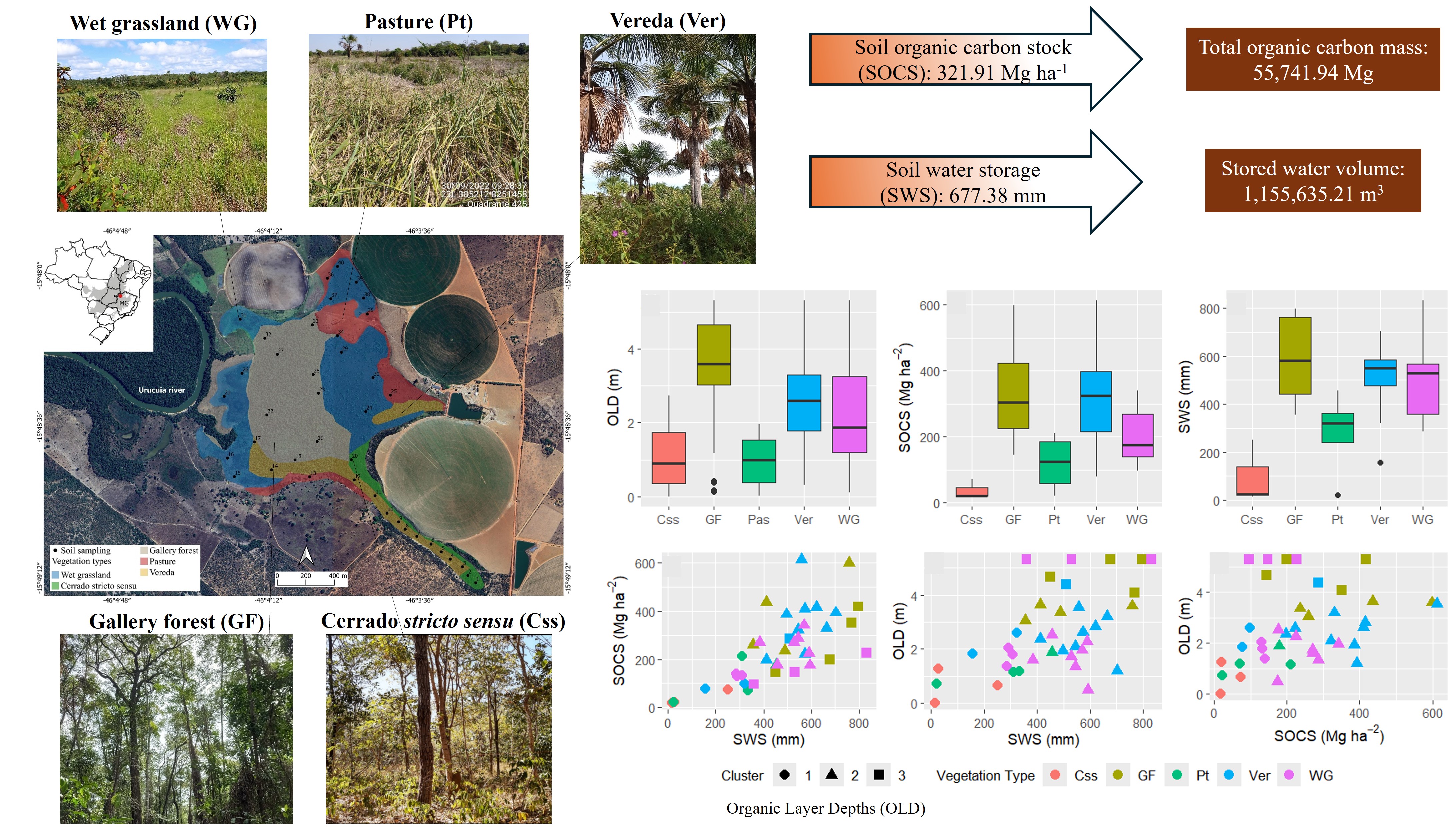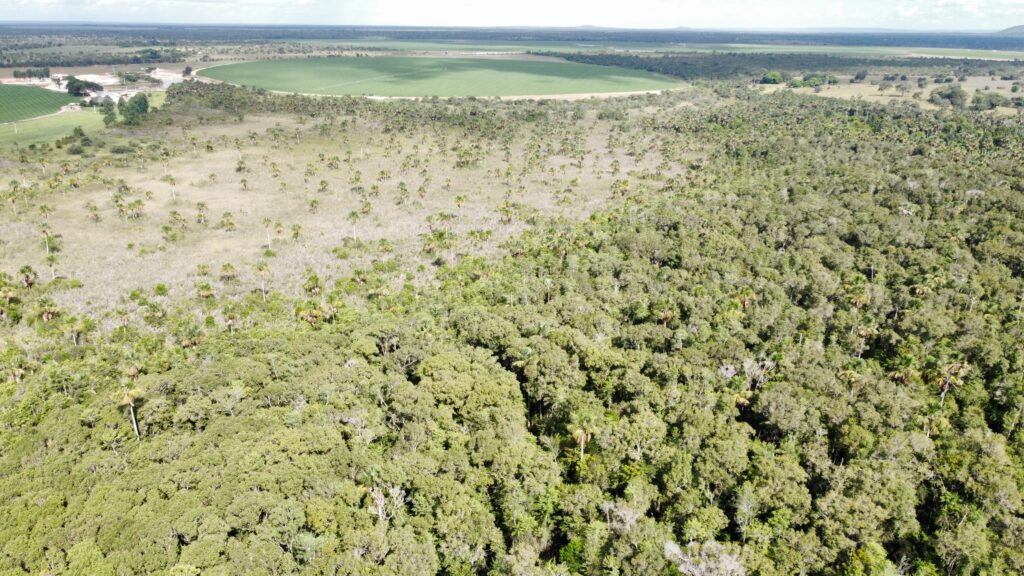Rev. Bras. Ciênc. Solo.2025;49:e0240137.
Soil organic carbon stock in a peat-wetland ecosystem in the Cerrado biome under different land covers and its role in water storage
01/Apr/2025
DOI: 10.36783/18069657rbcs20240137
Graphical Abstract

Highlights
Carbon stock and water stored is greater in the most superficial layers.
High sampling resolution enabled detailed carbon stock quantification.
Land covers control soil organic carbon heterogeneity in the wetland.
Carbon stock is 2 times higher in the wetland than in Cerrado agricultural soils.
About 1 g of organic soil stores up to ~17 g of water.
ABSTRACT
Wetlands provide important ecosystem services, including climate regulation through carbon sequestration and water storage. Identifying and protecting wetlands is a potentially significant opportunity for current global mitigation efforts. Cerrado wetlands commonly contain carbon-rich soils (peat); however, these environments have been neglected due to lack of knowledge on their characteristics and behaviors. Obtaining data in remote regions using a detailed sampling approach to characterize the organic carbon accumulation in these environments is extremely necessary. In this study, soil samples from 40 points of a peat-wetland (173.16 ha) in the Urucuia River watershed (Minas Gerais, Brazil) were analyzed every 0.20 m up to 1.20 m of depth. Their chemical and physico-hydraulic properties were studied to quantify organic carbon storage under different land covers. In addition, the influence of organic carbon accumulation on soil water storage in a dry period was also investigated. Considering the contribution of each vegetation type, the (weighted) average for the wetland stocks was 321.91 Mg ha-1 of carbon at full depth, whereby vereda (462.59 Mg ha-1) and gallery forest (447.63 Mg ha-1) were the biggest stockers compared to wet grassland (267.22 Mg ha-1), pasture (123.46 Mg ha-1), and Cerrado stricto sensu (57.77 Mg ha-1). Also, the study area holds 677.38 mm of water, with the following water depths: 831.32 mm for gallery forest, 780.42 mm for vereda, 693.63 mm for wet grassland, 297.59 mm for pasture, and 220.33 mm for Cerrado stricto sensu. The total organic carbon mass and stored water volume were respectively 55,741.94 Mg and 1,155,635.21 m3, respectively. A significant correlation between organic carbon and water stored was found (0.73), highlighting the role organic matter plays in water storage, whereby the latter is under greater influence and can be explained by layer depth rather than vegetation type. However, surface layers show evidence of a degradation process that may be linked to the lowering of the water level due to subsurface lateral flow, either through the indirect use of their soils and/or through the input of mineral material (erosion process). The study data highlight that riparian zones of the Cerrado biome must be protected to maintain their ecosystem services.
216

